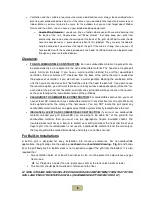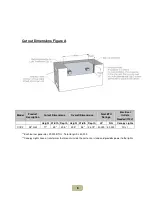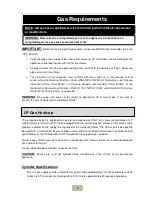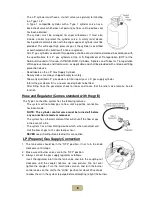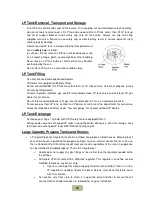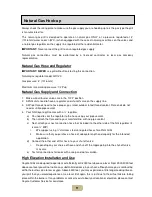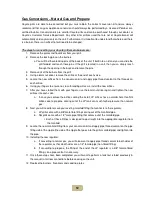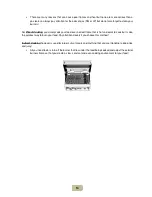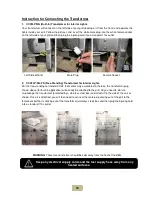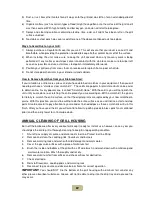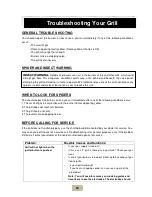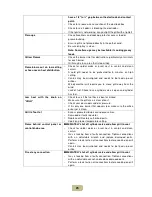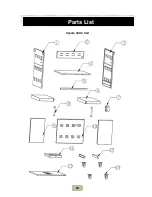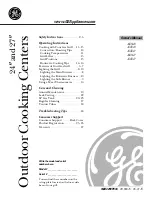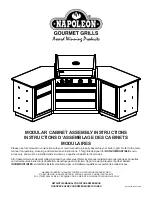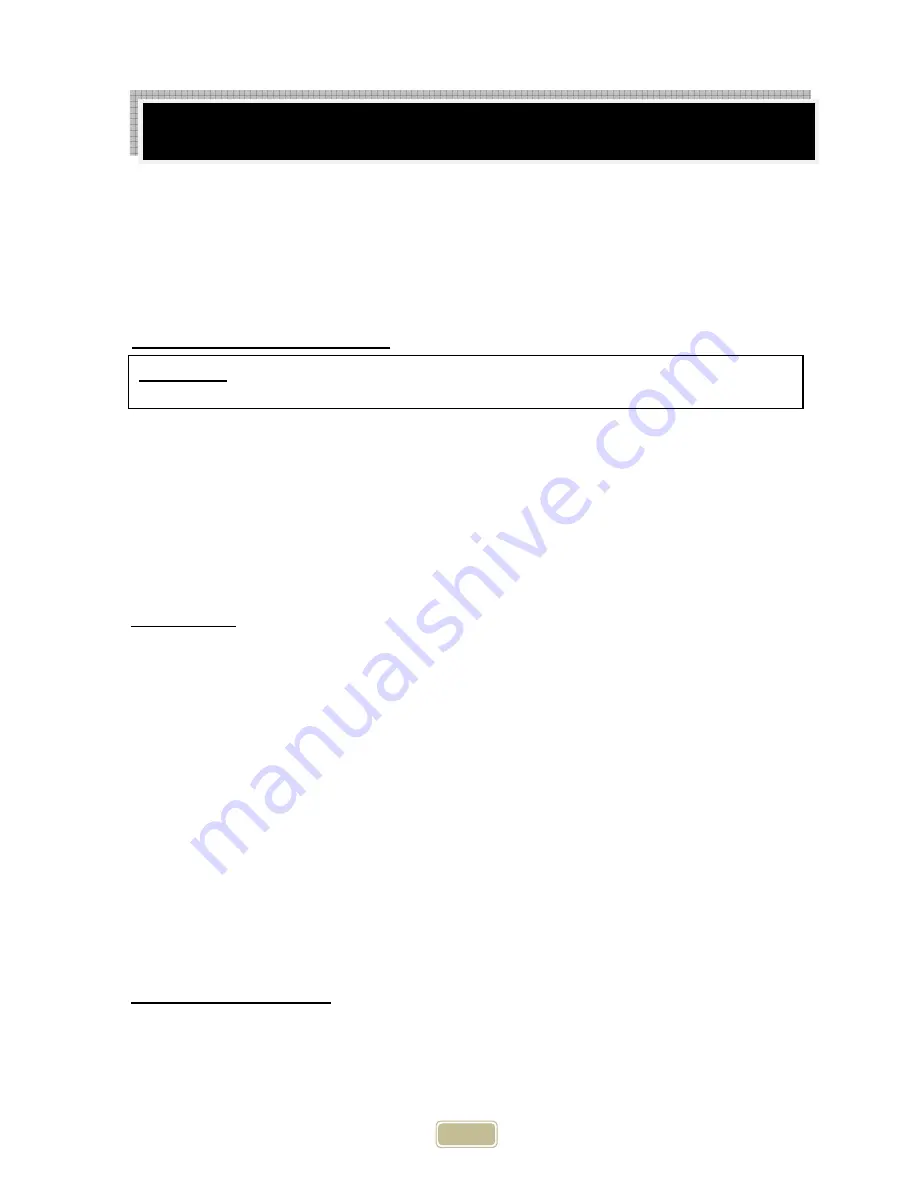
18
When you first ignite your grill burn the grill to get rid of any odors or debris that may be left over from
manufacturing and transit. This is done by operating your grill at the “HIGH” setting with the hood
closed for no more than 5 minutes.
•
Since this is a high temperature grill; closing the hood will cause heat to build up and could
easily cause an excessive flare-up that could cause internal damage to the grill (knobs, igniter,
etc.).
•
After you have “burned off” the grill, you are ready for cooking!
Preparing Food for the Grill
-
Always cook foods adequately. Undercooked foods can retain bacteria, especially if thawed or
exposed to warm conditions prior to cooking.
-
Always use separate plates and utensils for the handling of raw food. Never place raw food and
cooked food on the same plate, and never place cooked food on a plate that was used for handling
raw food.
-
Always carefully wash all plates and utensils used to handle raw food before using them to handle
cooked food.
-
Always wash all vegetables, seafood and poultry before cooking.
-
Always leave uncooked foods in the refrigerator until you are ready to start cooking.
-
Always marinate meat in the refrigerator. Dispose of the excess marinade, and never reuse it.
Grilling Tips:
-
If you pre-cook meat or poultry, do so immediately before grilling.
-
Refrigerate leftovers within 2 hours of taking food off the grill.
-
Never let the tray boil dry. That could be hazardous, as grease from fatty foods that have
collected in the tray could ignite and possibly cause bodily injury or property damage.
-
Use a meat thermometer to be sure food has reached a safe internal temperature.
-
Always trim excess fat from your foods to reduce the occurrence of flare-ups during cooking.
-
Apply a light coating of cooking oil to the cooking grids before grilling, to prevent foods from
sticking.
-
Cook similar portion sizes together, so that they all cook evenly.
-
Use tongs to turn foods on the grill.
-
Never pierce foods while they are cooking on the Grill, as this will dry them out.
-
Turn foods infrequently. Some chefs say that a good steak should never be turned more than
once.
-
Apply sugar-based sauces such as commercial barbecue sauces only during the latter stages of
cooking, to prevent charring.
-
Soak the string you use to tie up roasts and poultry on the rotisserie spit to protect it from burning.
-
Use a disposable aluminum tray filled with water, fruit juice, wine or a marinade to add extra flavor
and moisture to slow-cooked foods like roasts, whole chickens, turkeys or ducks.
Controlling Flare-ups
Flare-ups are a part of cooking meats on a gas grill. This adds to the unique flavor of cooking on a gas
grill. Excessive flare-ups resulting from the build-up of grease in the bottom of the grill can over-cook
the food and cause a dangerous situation for you and your grill. If this should occur, DO NOT pour
water onto the flames, which can cause the grease to splatter and could result in serious burns or
bodily harm. If grease fire occurs, close the hood and turn off the main burners until the grease burns
Operations and Features
WARNING:
Always observe safe food-handling and safe food-preparation practices when using
this Grill, to prevent food-borne illnesses.
Summary of Contents for C1C28LP
Page 30: ...28 Coyote CCX2 Cart Parts List ...
Page 31: ...29 Coyote CCX2 LP NG ...


